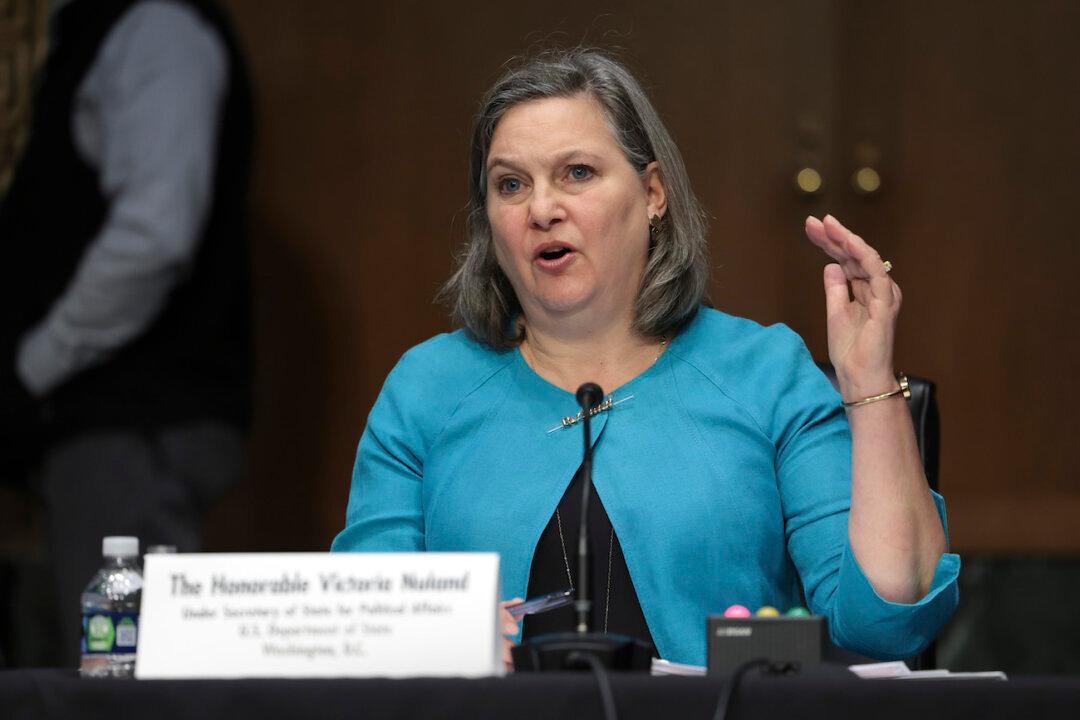The Biden administration’s recent decision to provide Ukraine with U.S.-made Abrams battle tanks, the U.S. sanctions on Russia’s Wagner Group, and the recent dismissal of high-ranking officials in Kyiv amid corruption allegations were among a broad range of topics pertaining to Russia’s invasion of Ukraine that were discussed by a trio of U.S. officials during a Senate committee hearing on Jan. 26.
Undersecretary of State for Political Affairs Victoria Nuland, USAID Assistant Administrator for Europe and Eurasia Erin McKee, and Assistant Secretary of Defense for International Security Affairs Celeste Wallander answered questions posed by the Senate Foreign Relations Committee for two hours during the hearing, titled “Countering Russian Aggression: Ukraine and Beyond.”





